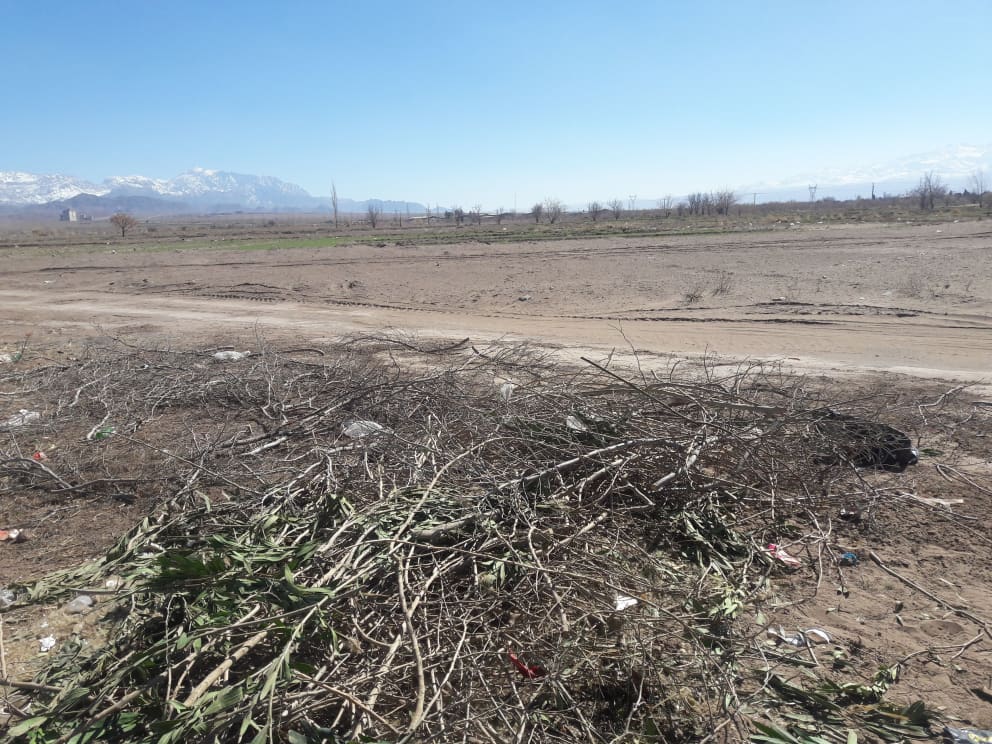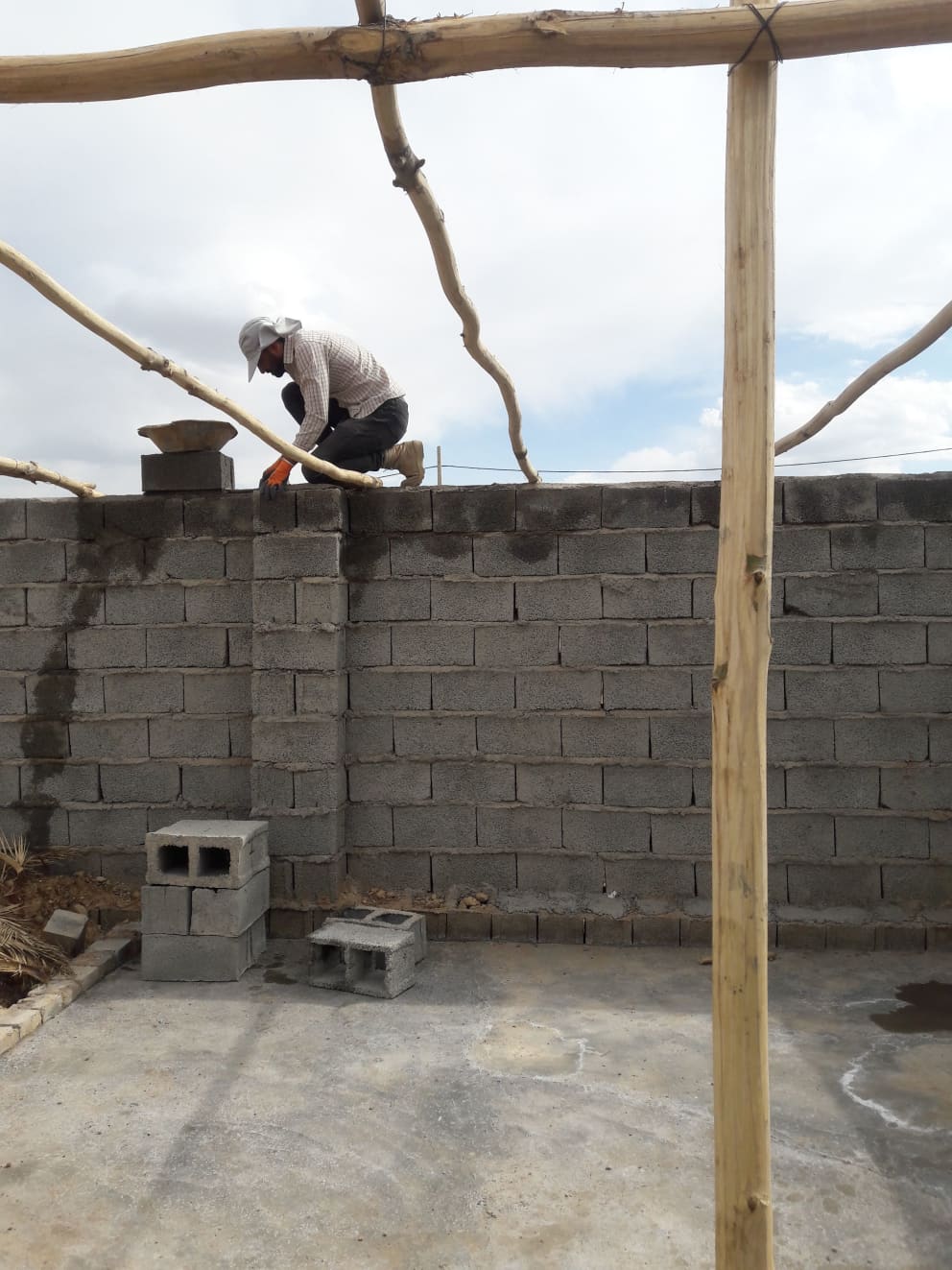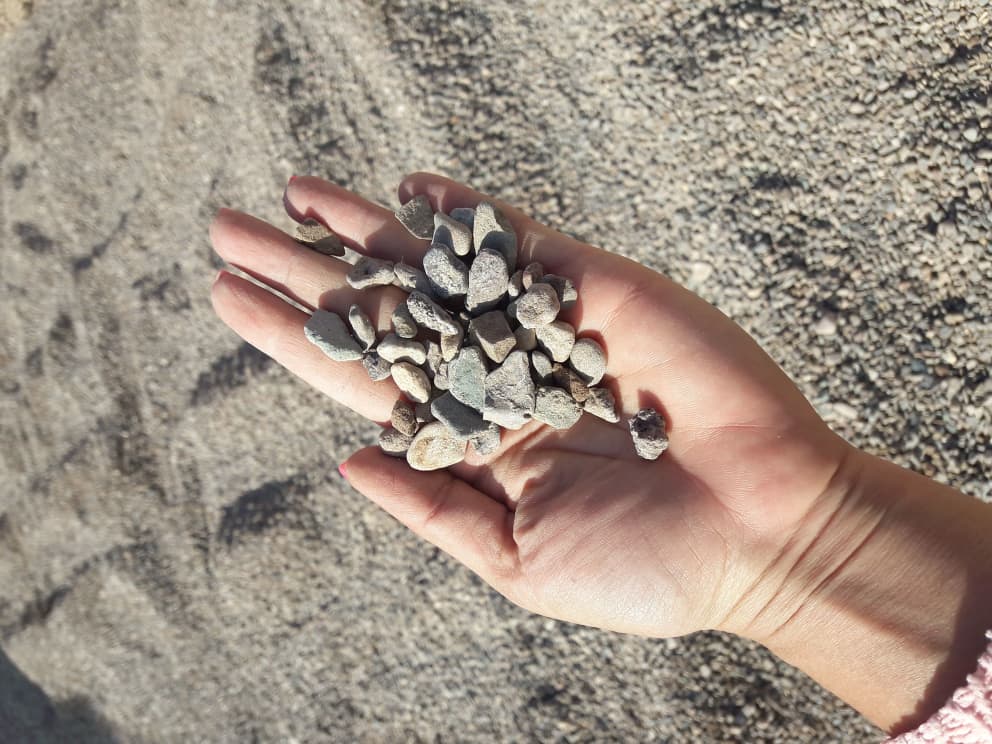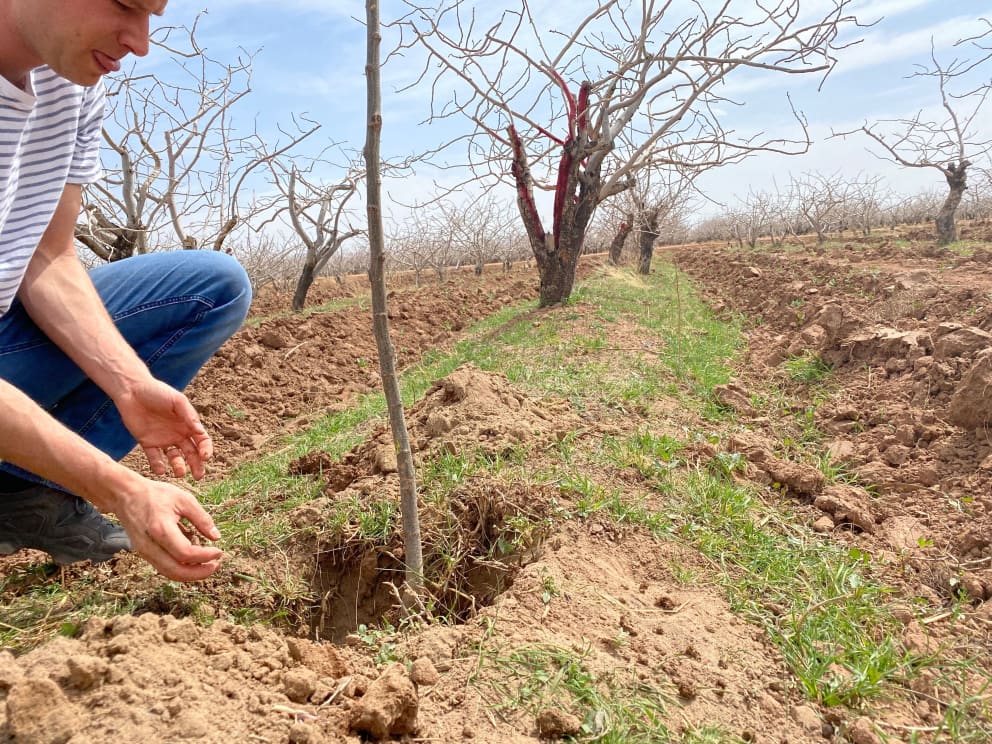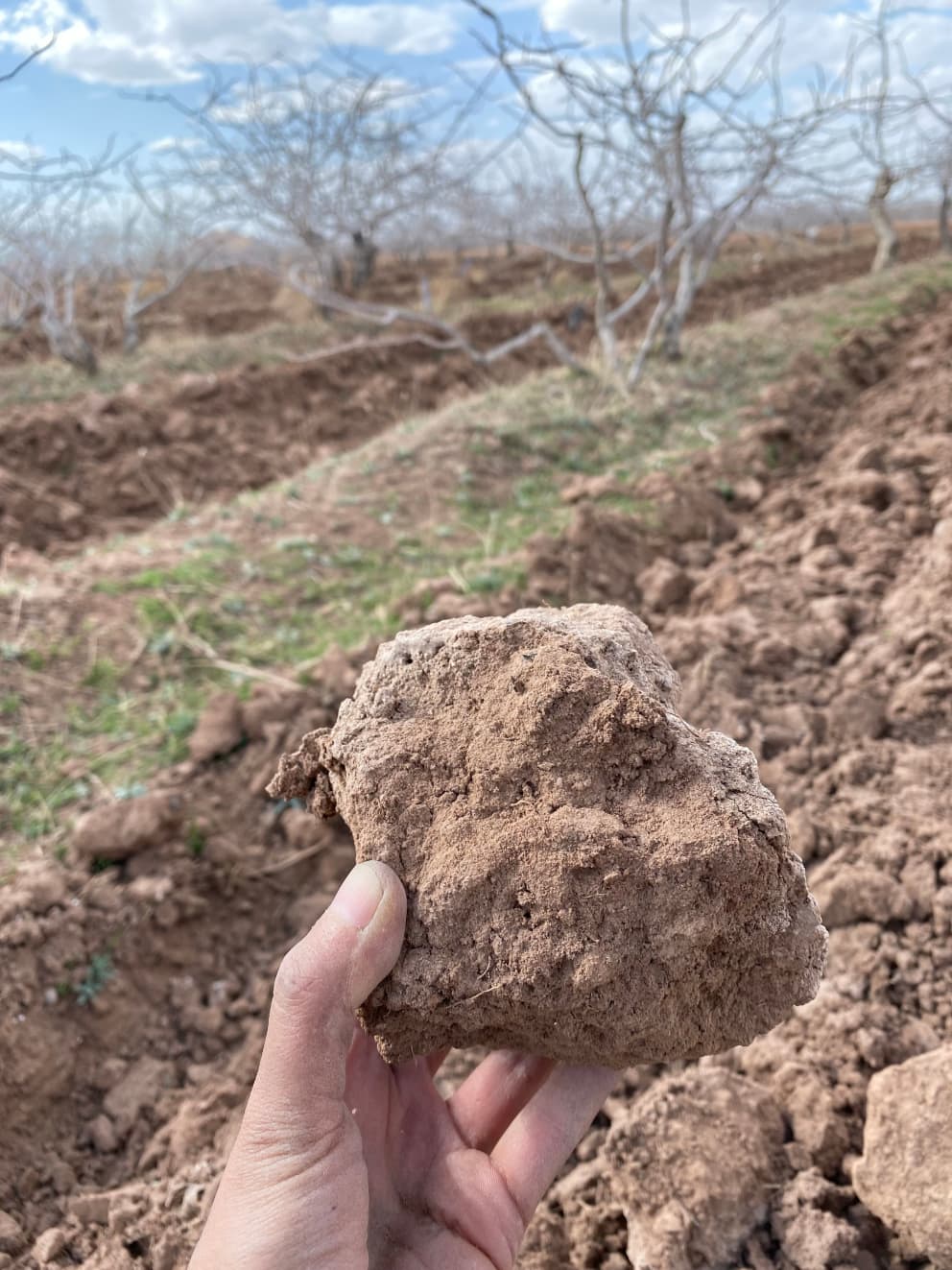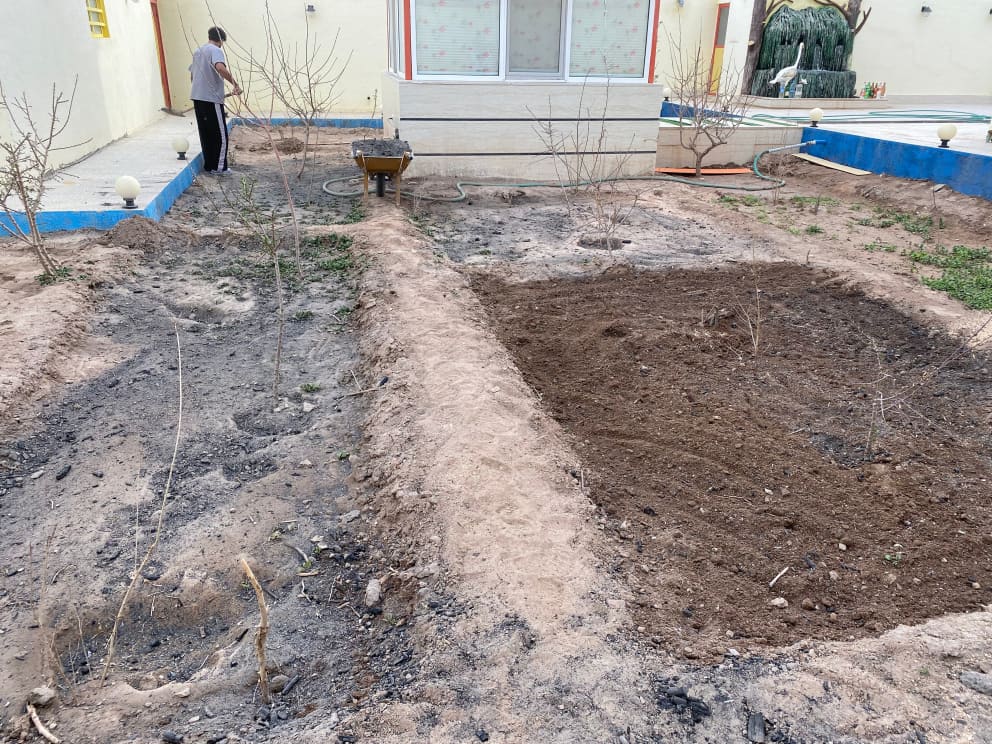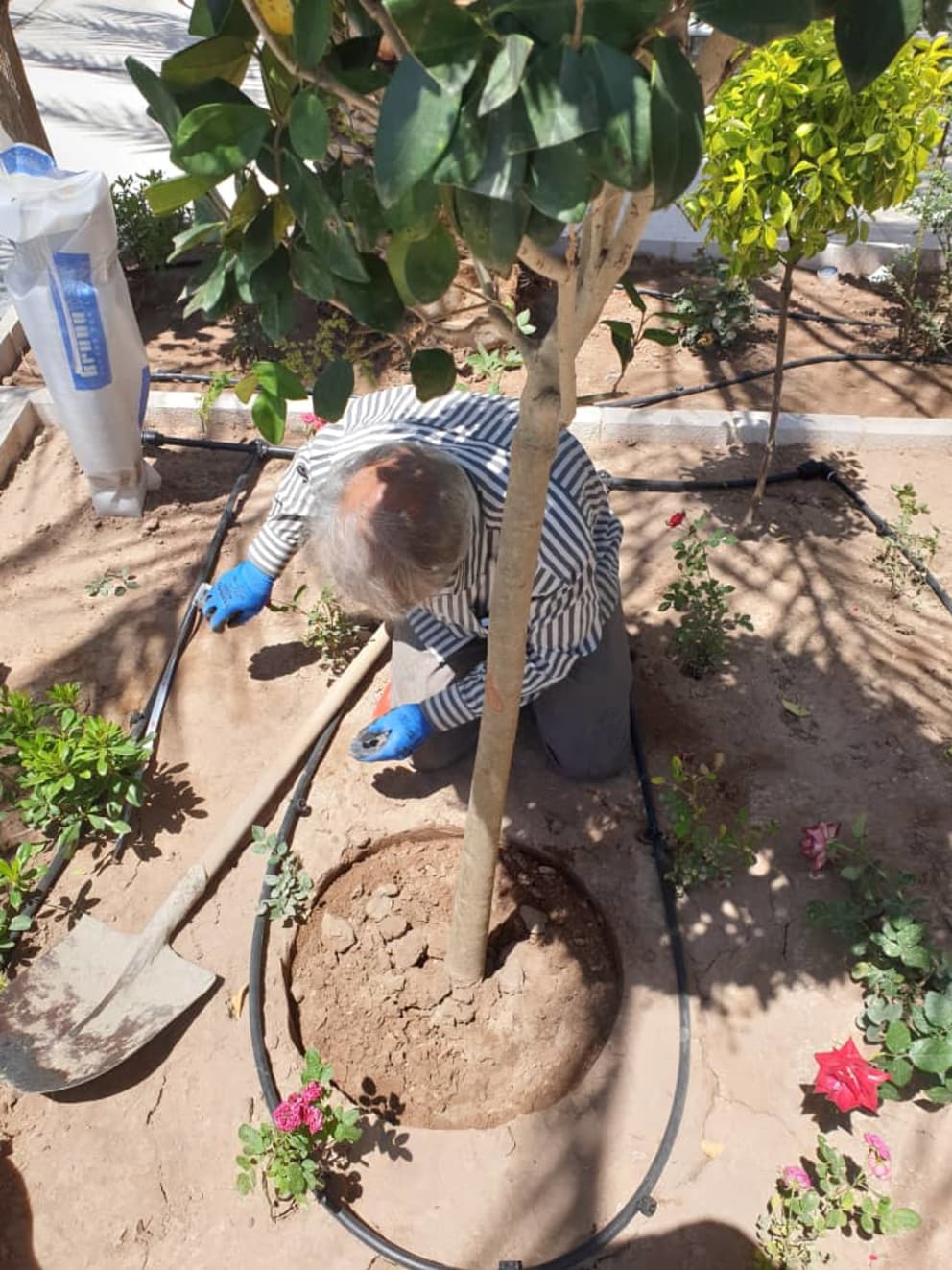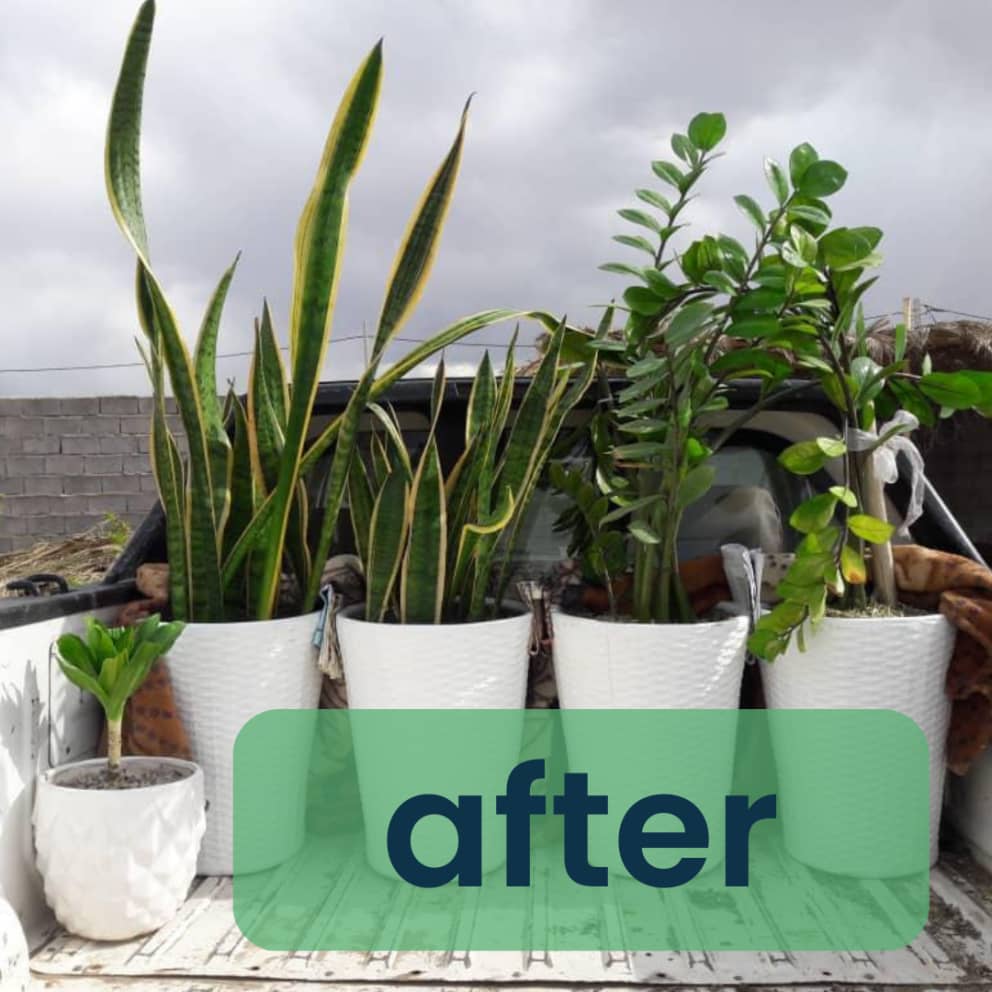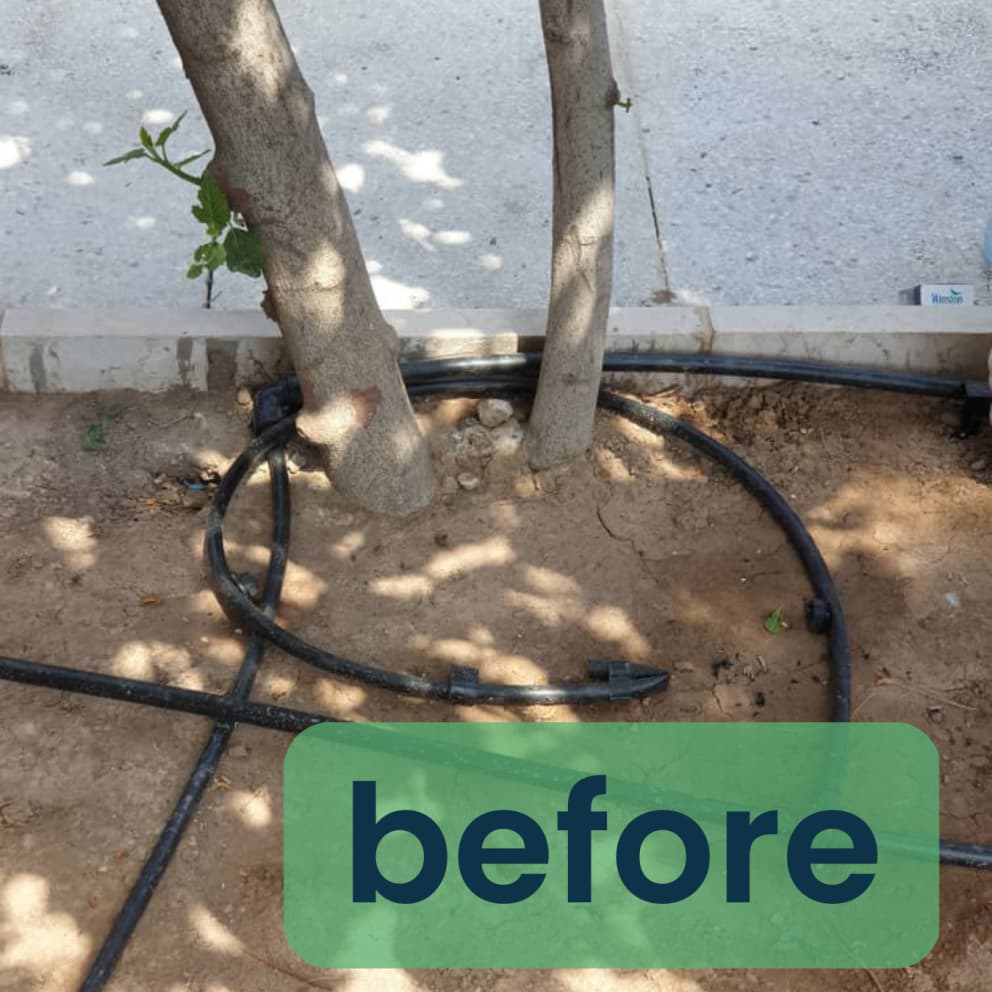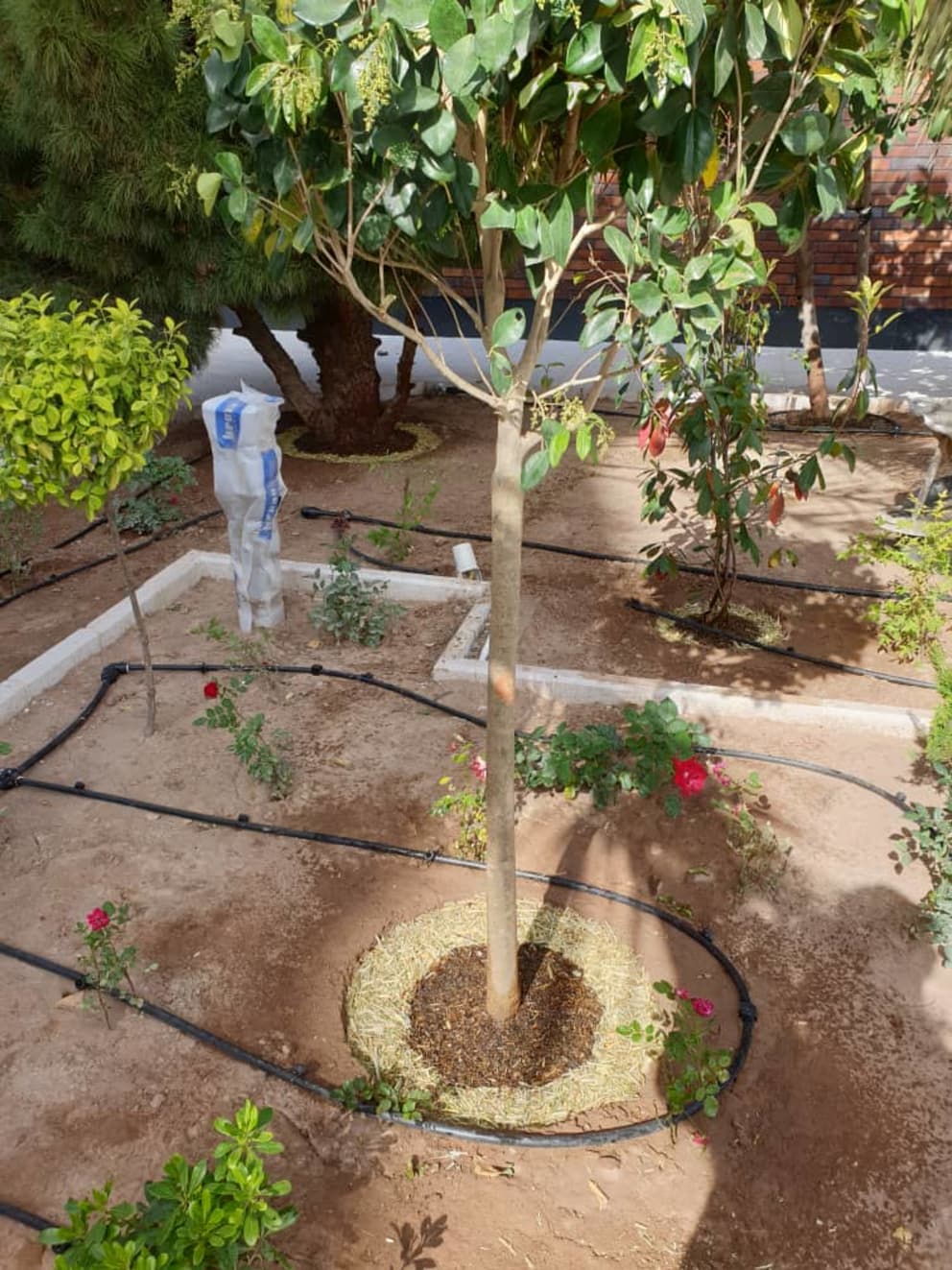Iran Start-Up
People in Iran have been experiencing the effects of climate change for decades. betterSoil founder Azadeh Farajpour grew up in Iran and knows this firsthand. Even in the days of the Persian great kings, when many rivers and rich vegetation characterized the region, magnificent gardens inspired people. The concept of paradise dates back to this time. Due to the personal connections and the historical roots of Persian agriculture, Iran is the perfect starting point for the betterSoil team.
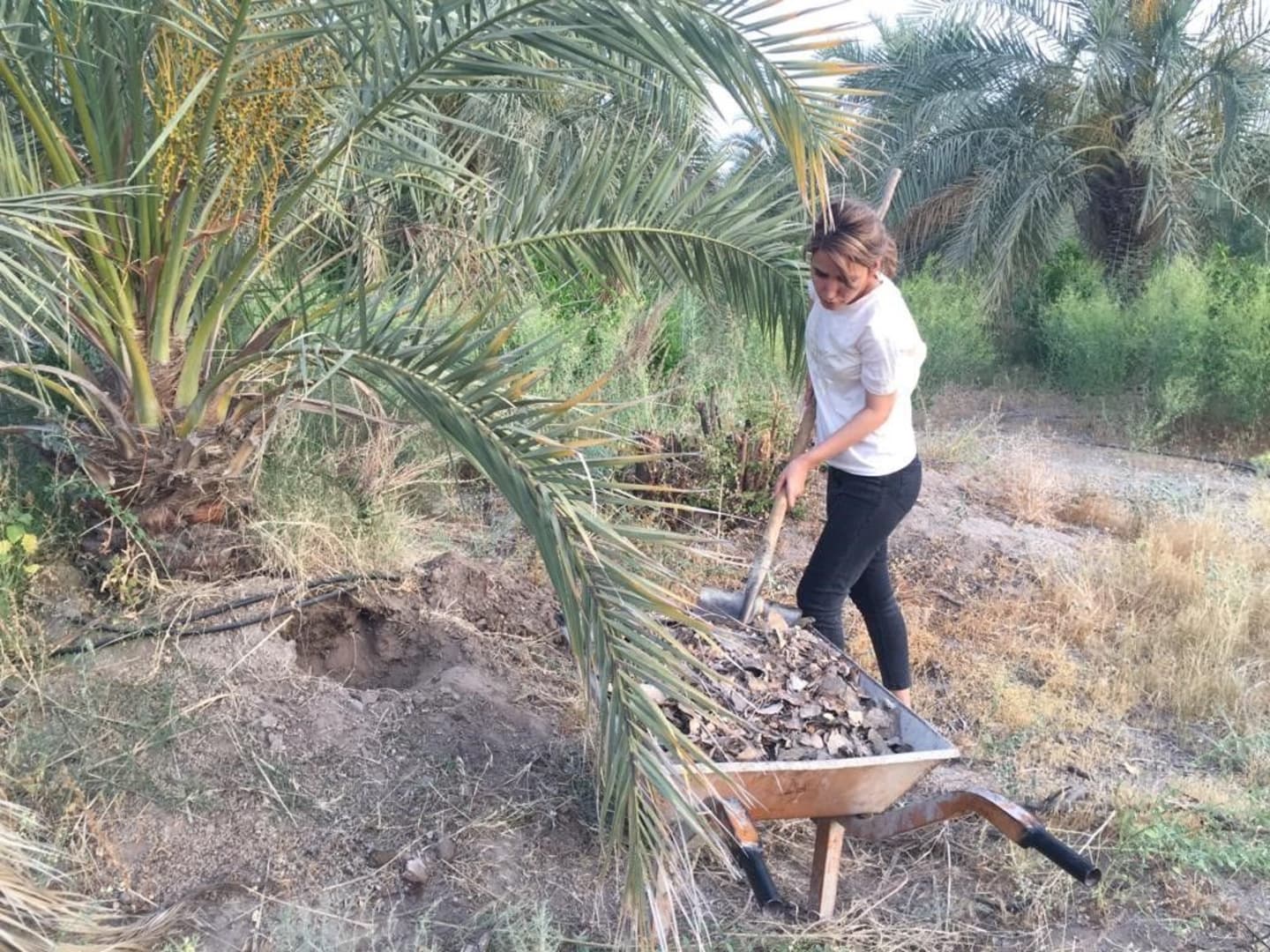
Harsh conditions in Iran create strong need for better soils
The Team in Iran
Elaheh is an avid soil scientist with a keen interested in everything that lives in the soil beneath our feet. Somayeh has hands-on experience in soil improvement on her family’s farm. Together they embody the betterSoil approach of combining scientific knowledge with indigenous experience. Elika recently joined the team to promote betterSoil in the country. Azadeh and Tobias support the team from Germany and by visiting Iran regularly.
Our approach
In a dry region like Iran, soil improvement is inherently challenging. However, when soil is imporved, great gains are made. For nature, for people and for the climate. We registred a company in Iran and started operations: We have started the production of our betterSoil Booster and have won the first farmers and private gardeners as customers.
Waste becomes resource
In Iran, betterSoil is pursuing the concept of a circular economy. We have started collecting and recycling bio and green waste throughout the city of Kerman. In this way, we can transform the waste from a problem into a solution for a sustainable future. We are talking to local people, networking and taking a practical approach to the situation. This is how our team has laid the foundation for a sustainable supply chain for the production of our soil amendment products.
There is a lot of bio and green waste in the world, such as food scraps and garden waste. Every year, more than 80% of it is not recycled but sent to landfills, which pollute the environment, climate and groundwater. Often, biowaste is burned in open fields, releasing carbon dioxide into the atmosphere.
Urbanization and population growth in Kerman are increasing the demand for our work. By 2050, even more people will live in the city and produce even more waste. This means that our environment will be even more polluted. That's why we feel even more compelled to expand our work. We turn waste into nutrients to improve the soil. A problem becomes the beginning of a solution.
Setting up our production site
If you want to produce something, you need a production site. With the help of the team, we could find a piece of land 20 km far from the city of Kerman. The land was bare, only a wall surrounding it and a door to enter. We had to make it ready for betterSoil-Booster production. A List of necessary equipment and materials was made very quickly.
The team straightened the surface and spread coarse gravel to avoid sinking into the mud when it rains. A tool shed was built for the equipment. In addition, we built a wooden structure with a roof made of palm leaves, which provides shade in the hot summer hours at 30-40°C.
betterSoil-Booster production
This year, the betterSoil team in Iran has started the production of our betterSoil Booster. After collecting bio and green waste in the city Kerman, the next step is to chop and shred it. Rather wooden parts are turned into biochar. Although it looks simple, our method results in biochar that meets the criteria of the European Biochar Certificate. We get the betterSoil Booster by combining our high-quality biochar with compost from more nutrient rich parts of the bio and green waste.
But that’s not the whole story. The betterSoil Booster is rich in nutrients and full of live. Millions of microorganisms, bacteria and fungi thrive in it. We know from our own experience and science that these living creatures cannot wait to hit the ground. Released onto agricultural lands and gardens of our customers they build humus to improve their soils, help plants grow and make our food production more sustainable. Through carefully managing the production process the Booster is of high quality and free from harmful contaminants.
Soil consulting (farmers)
Soil is the capital of farmers. They know their land, their climate, their plants and trees. At betterSoil, we combine this local, indigenous knowledge with the latest scientific findings. The climate is changing. Rain is less, less frequent and irregular. When it does come, it increasingly rains so much at once that flooding occurs. Good soil is washed away.
We talk to farmers and combine our four betterSoil principles to deliver the best results for our customers. Our betterSoil Booster combines compost and biochar for more humus formation. Packed with natural living microorganisms, bacteria and fungi, it makes soil come alive again.
We advise our customers to improve their farming methods so that the soil becomes healthier and the harvest increases. Plants and trees that grow in healthy soil are more resistant to climate change. The slow establishment of agroforestry systems also increases soil fertility, enhances biodiversity, provides shade for plants, and protects the climate.
Soil consulting (garden)
A garden is a small paradise. Here we come to rest, relax and recharge our batteries. Especially in Persian culture, gardens are indispensable. The term "paradise" goes back to the fertile gardens of the Persian kings thousands of years ago.
This year, our betterSoil team helped the first customers in Iran to make their gardens fit for the future. Better soils store more water and don't need to be irrigated as often. Too much salt in the soil is broken down and salinization is prevented. Living soils filter pollutants from the air, which are a particular problem in large cities. This gives gardens a better microclimate. Plants and trees are healthier, grow better and attract insects and birds. Biodiversity in cities increases. Plus, it looks good!







